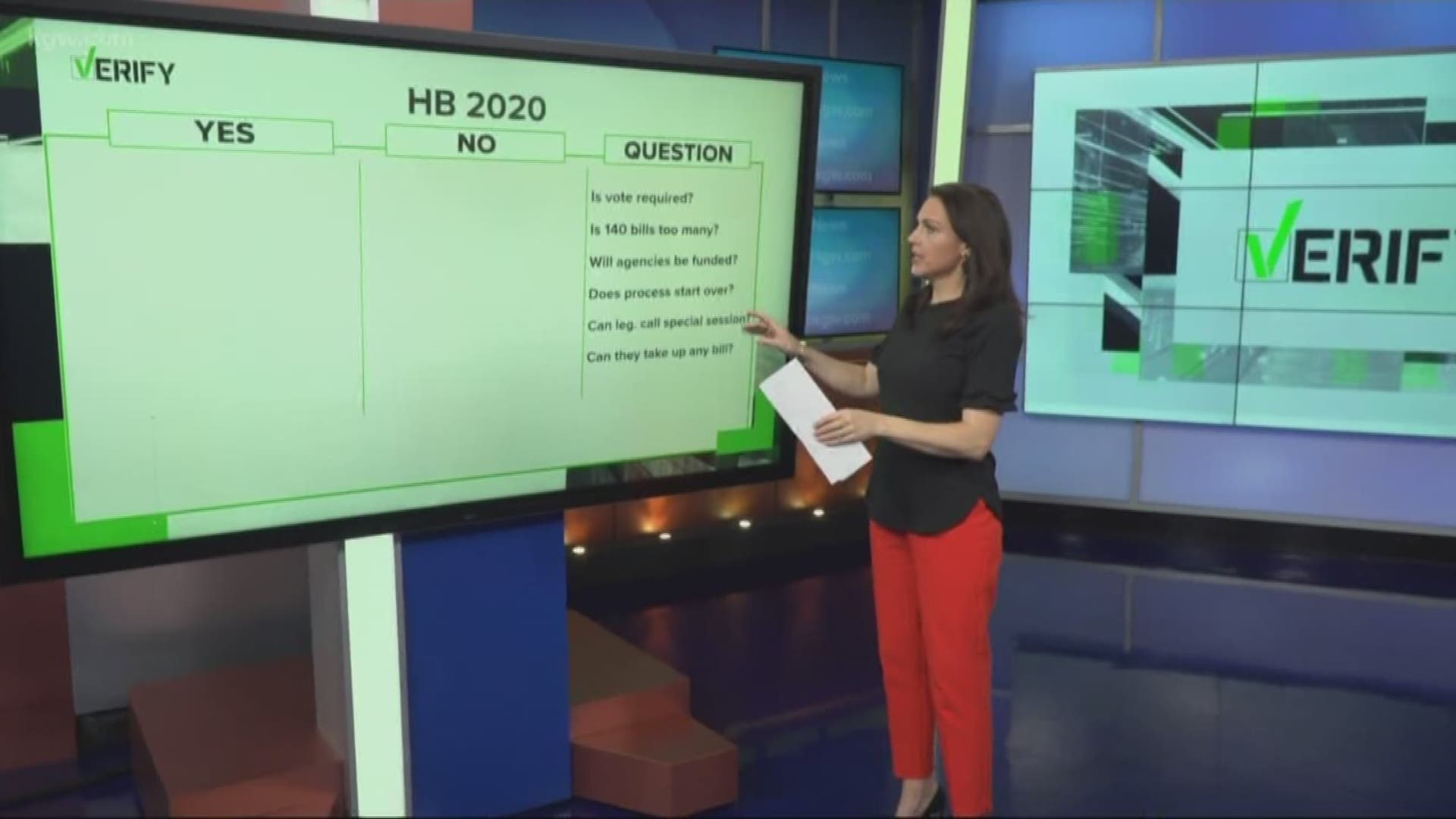SALEM, Ore. — An eight-day Republican walkout over sweeping climate change legislation in Oregon has prevented votes on the nation's most generous paid family leave program, money for affordable housing and other key measures.
More than 100 proposals on a wide range of issues have stalled during Oregon's political crisis. Eleven Republicans left the Capitol on June 20 to deny the supermajority Democrats the number of lawmakers needed to vote on a measure that targets climate-changing emissions.
Democrats have said that even if the Republicans return, they don't have the votes to pass it.
The legislative session ends at midnight Sunday, and Republicans have said they won't come back until Democrats agree to put the climate measure before voters.
Democratic Gov. Kate Brown can call a special session, but lawmakers essentially would have to start from scratch on legislation.
"By not being here, Republicans are holding up important policy bills that directly affect their constituents and the entire state," Democratic Sen. Elizabeth Steiner Hayward said.
Learn more: What is cap and trade?
Here are some of the measures that hang in the balance:
PAID FAMILY AND MEDICAL LEAVE
A proposal would create the most generous paid family and medical leave program in the U.S. It would be the first to offer 100% replacement wages for minimum wage workers. The bill, which would offer 12 weeks of paid leave to those making more than $1,000 a year, appeared to have bipartisan support before the Republican walkout. If the Senate approves the plan, Oregon would join seven other states with similar, though less generous, paid leave programs.
CAMPAIGN FINANCE REFORM
Lawmakers were on track to pass a constitutional amendment that would place limits on campaign contributions after a governor's race that broke fundraising records. Candidates raised a combined $30 million last year. Oregon is one of five states with no limits on campaign contributions, and lawmakers have long complained that they have to raise exorbitant amounts of money to be competitive. As a constitutional amendment, the bill would need final approval by voters in 2020.
WILDFIRES
The state Department of Forestry's budget still needs to be approved, and it includes more money for smoke management, a huge issue in Oregon. A delayed budget postpones the timeline to prepare for next year's wildfire season because funding levels are uncertain. Funding to battle fires this year isn't at risk.
FOSTER CARE FUNDING
A budget that would include money to hire 347 new foster care caseworkers is hung up in the stalemate. The foster care system has come under fire after reports that children sent to facilities out of state never received visits from Oregon caseworkers and that a facility in Montana drugged and physically restrained a 9-year-old Oregon girl. A national advocacy group sued Oregon in April, and the union representing caseworkers recently protested outside the Capitol, saying they are severely understaffed.
AFFORDABLE HOUSING
Oregon has a major affordable housing problem, from its largest cities to its smallest rural towns. The Legislature was making progress on legislation encouraging development of denser housing units, including duplexes and triplexes. Now, more than $350 million is on hold. The money would go to a range of issues, including homeless services, veteran housing and preserving mobile home parks that are being overtaken by development.
TOBACCO TAX
Legislation would increase taxes on tobacco and enact a wholesale tax on e-cigarettes, raising $346 million every two years to plug a funding gap in the state Medicaid program. It would raise the tax on a pack of cigarettes by $2 and institute Oregon's first tax on e-cigarettes and vaping products. It also increases the cap on the tax on cigars from 50 cents to $1. If the Legislature passes the bill, it would still go on the 2020 ballot.

